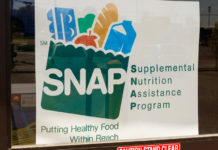When I hear “welfare payments,” I think “poor people.”
But America’s biggest welfare recipients are often politically connected corporations — like America’s sugar producers.
The industry gets billions of dollars in special deals while deceitfully running ads that say, “American farmers don’t get subsidy checks.”
That ad confused me. If they “don’t get subsidy checks,” then what is America’s multibillion-dollar sugar program?
“It costs taxpayers nothing,” claim ads from the American Sugar Alliance. “We are a no-cost program, no cost to the taxpayer.”
“That’s absolutely bogus,” says Ross Marchand of the Taxpayers Protection Alliance in my newest video. Americans “pay as customers and they pay as taxpayers.” He’s right.
We pay several billion dollars extra every year, with “all of that money going to that handful of rich politically connected growers.”
Several companies — Amalgamated Sugar, Michigan Sugar and Western Sugar Cooperative — get three forms of handouts:
1. Subsidies when sugar prices fall below a certain level.
2. Protection from foreign competition (a limit on imports).
3. A guarantee that prices stay high (the sugar program imposes quotas on how much sugar may be produced in America).
“These are Stalin-style price controls and supply controls,” says Marchand. “It does not help anyone.”
Well, it helps Big Sugar.
The price of its product is roughly doubled by these rules, so Americans pay the politically connected owners about $4 billion dollars extra.
Why does such a scam persist?
One reason it hasn’t been repealed is, well, Washington rarely repeals any handout. But also, this one costs most of us just $10 or $20 a year. We won’t go to Washington to lobby over that.
But companies that get the subsidies sure do. Creighton University economist Diana Thomas says, “Each American sugar farmer made roughly $3 million a year extra” from America’s sugar program. “Each is willing to spend a lot of time and money making sure that the law stays that way.”
Finally, Big Sugar is very good at deceiving politicians and the media.
The American Sugar Alliance has the nerve to run ads claiming that without its corporate welfare Americans will suffer food shortages. They use images of World War II food rationing while an announcer proclaims, “Depending on other countries for a food staple was a recipe for disaster… Does America really want to give foreign countries control over its food?”
Give me a break. Imports obviously increase our supply of food. There are no import restrictions on most other foods. Yet America doesn’t suffer shortages.
In fact, if there’s a problem, it’s that Americans eat too much, and much too much sugar.
This multibillion-dollar handout is simply Welfare for the Rich.
Protecting the handouts provides welfare for politicians, too — pols from both parties.
Sen. Debbie Stabenow, D-Mich., and Reps. Mike Conaway, R-Texas, and Collin Peterson, D-Minn., get the most money from Big Sugar. No. 9 on the list is Sen. Marco Rubio, R-Fla., who has criticized welfare payments to poor people, saying (correctly) that handouts discourage honest work.
“I’m prepared to get rid of the sugar program tomorrow,” says Rubio, “if the countries we compete against get rid of theirs.” In other words: “Since other countries subsidize sugar, America must retaliate!”
Marchand had a good answer to that: “Is it fair for customers to pay double the world rate for sugar? Is it fair for taxpayers to have to bail out a handful of super-rich, super-connected sugar processors? No!”
It’s also not fair that all businesses that buy sugar must pay the sugar-makers’ artificially inflated prices. Candy-makers are hurt most. “There is only one candy cane producer left in Ohio. That’s absolutely ridiculous,” says Marchand. “Look at all those jobs!”
About 20,000 American jobs are lost every year because politicians keep sugar prices artificially high, says a University of Iowa study.
It’s not just candy-makers who suffer. There’s added sugar in bread, beer, yogurt, ketchup, cereal and lots of other foods.
Consumers pay more and almost every food business suffers because a few big sugar companies have the political clout to get themselves a sweet deal.






























